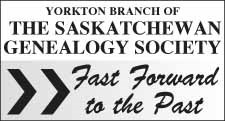For those who are just beginning genealogy research, it might be overwhelming for two reasons: either because of the lack of information, or because of the vast amount of information available.
Your first step should be to record as much information as you know right now about your family. Next, talk to any and all relatives to record information that they have that might fill in the gaps. No nugget of information is too small to record.
Once you have recorded all immediate information, you can begin going back by checking other information. Here is where it can get overwhelming, but just take one step at a time. In your search, you might be checking church records such as birth, death, and marriage records. You may have to check adoption records, too; many children were orphaned or unable to stay with their natural parents for a wide variety of reasons.
Census records are very useful to discover where members of your family resided and for how long. You can also check old phone directories for names.
If you have a relative that saved old letters, you'll find a wealth of information in those folded pages. Before the age of rapid communication, letters communicated much more than "How are you, I am fine." Letters told of all the news: who was sick, who was engaged, who went west to work, and who died. Those who did not know how to read and write in English often called on the assistance of a neighbor or friend to translate and write letters and business documents. Old letters can be the window of everyday life for an entire community.
Also very helpful are old family photos: in days gone by, photos were often reserved for solemn family gatherings like weddings or funerals when all the family was together. Often the entire family group was included in each picture, so as long as someone can identify who is who, pictures can be a valuable resource.
Obituaries are a wealth of information, because they usually list an entire family of the deceased, either as "predeceased by" or "survived by". This can help you fill in many gaps, especially when there are children or infants who died, and may not be clearly remembered generations later. Funeral home records may also assist with missing information.
These are just a few of the avenues to travel when looking for family history; and of course, information on-line has brought a world of information to your fingertips.
Interested genealogists can benefit from talking to others who are working on their family trees. The Yorkton branch of the Saskatchewan Genealogy Society has members of all stages of family research, and the group welcomes new members at any time. The group meets once a month in the History Room at the Yorkton Public Library. For more information, call Glenn at 782-7969 or Dave at 783-1093.
Every family has a story: discover yours with the help of the Yorkton branch of the Saskatchewan Genealogy Society!
Found on a tombstone in a Georgia cemetery: "I told you I was sick!"
Submitted by Debbie Hayward




